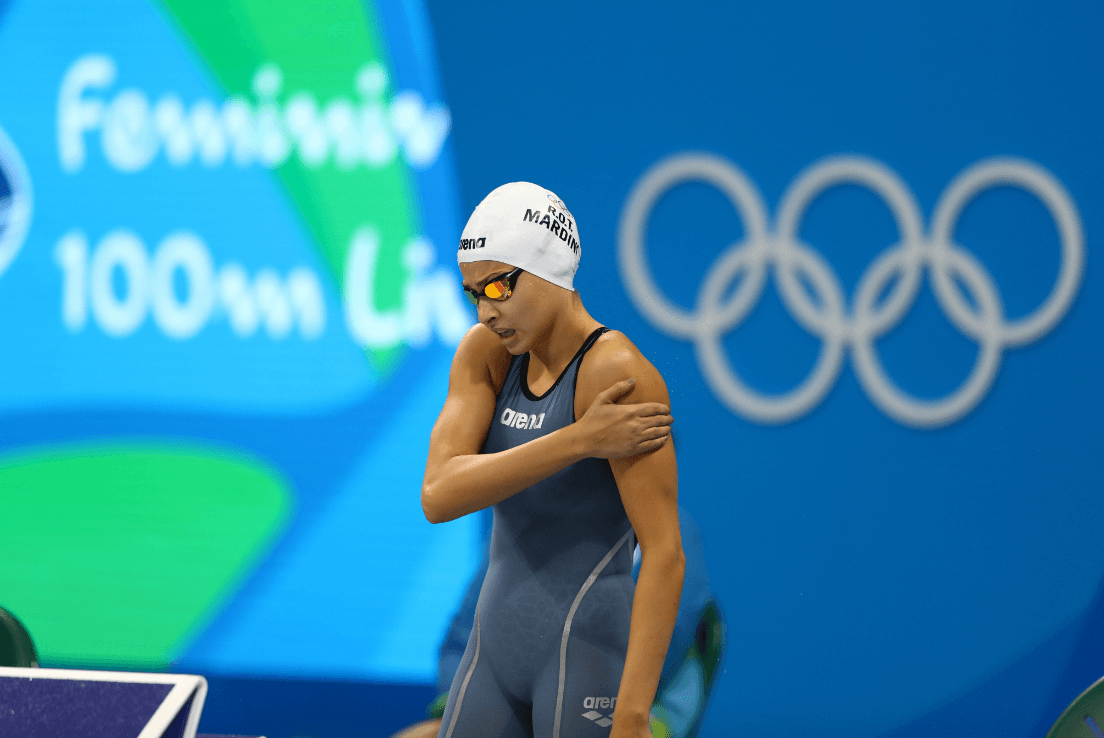Swimmers Who Overcame Tall Odds to Achieve Their Dreams
There is an image of a swimming career that many of us have ingrained in our heads. The well-lit chlorine pools. A nice warm shower after a tough training session. The use of gym equipment for dryland work. For the vast majority of those reading, they will recognize these descriptions. However, these environments are far from universal experiences.
In developed nations, we often condition ourselves to believe that our experiences must be relatable across the globe. The opportunities available are often taken for granted. We forget about those less fortunate, and do not express proper admiration for those who have overcome hurdles that we can not even fathom.
A glance at the statistics for the most historical Olympic medals paints a picture. Led by the United States, Western European nations, Australia, China and Japan, the chart assists in drawing conclusions. Temperate climates, large populations and well-funded swim programs from top to bottom. But others have very different experiences on their rise to the top, for one of numerous factors. Here are a prominent selection of them.
Swimming in Remote Corners of the Globe
While waking up at the crack of dawn to be put through your paces at another early morning session, you could be forgiven for not immediately contemplating how the climate of your nation is assisting you on your journey. However, this area is a major factor pertaining to the success of a nation on the international stage.
One such place where geography could have stood in the way of success is the story of an aspiring swimmer from the Cook Islands. Hailing from a tiny island chain in the South Pacific with a population of just 15,000 and located nearly 2,000 miles from its nearest major neighbor in New Zealand certainly can block your path to success.
However, this situation did not stop Pietro Okotai. Having developed a love for swimming while living in Papua New Guinea, Okotai returned to his native Cook Islands at age 11 with nowhere to train and initially considered quitting the sport. Okotai was desperate to continue his passion while representing his home country. However, the lack of a pool in the country remained an issue.
Okotai was forced to train in a lagoon, braving wildlife, temperature, salt water and currents. He managed to achieve his dream, as he competed in the 50 freestyle at the 2007 World Championships in Melbourne, before racing in the 100 breaststroke at the 2008 Olympics in Beijing.
The Cook Islands is not the only country where open-water swimming is not a separate discipline, but a necessity for pool training. Community swim clinics in Fiji are held in similar lagoons to those that Okotai used, while visiting Tongan athletes have described sessions held in reef-lined wharfs. Meanwhile, further dramatizing the expression ‘sink or swim,’ swimming lessons in the Seychelles are held in the sea.
The Original Outsider
Photo Courtesy: YouTube
When you think of nations that are powerhouses in the sport of swimming, one that will likely not come to mind is Equatorial Guinea. At the turn of the century, the nation had never seen a male swimmer compete at the World Championships and infrastructure was scarce.
These limitations, however, did not stop Eric Moussambani, immortalized as Eric the Eel. Taking up swimming just eight months prior to the 2000 Sydney Olympics, Moussambani did not have access to a pool and trained in a lake. The only pool he had ever seen was a hotel pool that was just 12 meters long. Ultimately, he was invited to the 2000 Sydney Olympics through a wildcard program designed to allow participation from athletes in nations that did not have established swim programs.
Moussambani finished more than a minute behind the eventual winning time, and he raced alone after disqualifications booted the other swimmers in his heat. Struggling through his two laps, Moussambani was propelled by the encouragement of the crowd. Additionally, he cut a colossal 55 seconds by the next Olympics in Athens, but did not compete due to a visa issue.
Following his retirement from the sport, he became the coach for the Equatorial Guinea swim team. Eric the Eel did not have a swimming upbringing, nor access to proper facilities and coaching. Yet, he competed at an Olympics and a World Championships, and used his experience to inspire a new generation of Equatorial Guinean swimmers, if nothing else to be water safe.
Triumph Through Tragedy
It is impossible to cover the ranging difficulties for swimmers dependent on their location without mentioning those affected by global geopolitical conflicts. Swimming, and sport in general, can be the only release for those living in such difficult and heartbreaking circumstances.
One example is Yusra Mardini’s story. Mardini was a swimmer in Syria from a young age, representing her homeland at the World Short Course Championships in 2012 at the age of 14.
However, tragedy followed. During the Syrian Civil War, Mardini’s house was destroyed in 2015. She, along with her sister, decided to flee the country, moving through Lebanon and Turkey before taking a boat to Greece. On this journey, the boat motor broke, leading Mardini to pull the vessel for hours before arrival. From there, the sisters traveled on foot to Germany, reaching their destination in September 2015.
Determined to continue her swimming career, Mardini continued swimming in Berlin and was selected for the inaugural Refugee Olympic Team for the 2016 Rio Olympics. Remarkably, despite fleeing war just a year prior, Mardini won her heat in the 100 butterfly and also competed in the 100 freestyle. Mardini also competed in the 2020 Tokyo Olympics as the Refugee Olympic Team’s flag-bearer. After the Games, she retired from competitive swimming to become an activist.
Her story is deeply inspirational, and an example of overcoming tremendous odds through pride, determination and hope.
